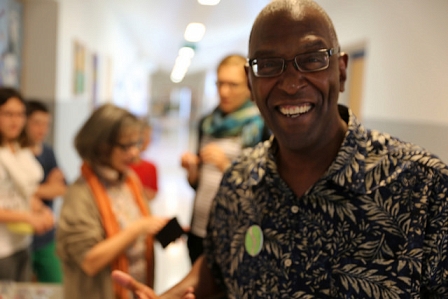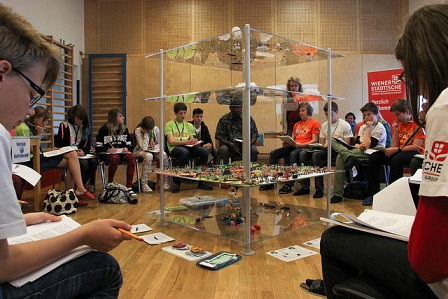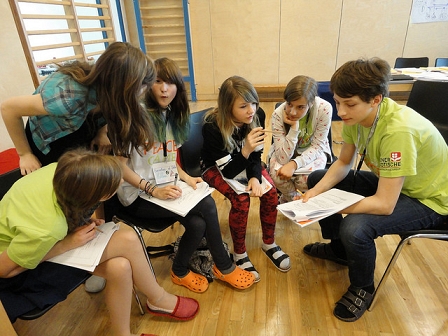Erstellt am: 30. 5. 2014 - 17:00 Uhr
The World Peace Game
"Wieso ist überall Geld im Spiel. Ein Indianersprichwort sagt:
'Erst wenn der letzte Baum gerodet,
der letzte Fluss vergiftet,
der letzte Fisch gefangen ist,
werdet ihr feststellen,
dass man Geld nicht essen kann.'
Ich möchte verstehen wieso Geld und Macht so wichtig sind und weshalb ich auf Wahlplakaten lesen muss, dass man zum Beispiel weniger an die EU und an andere Länder denken soll.
Kann man das verantworten, dass unsere Mitmenschen leiden müssen während wir unser Leben genießen und die Welt eigentlich vom Geld regiert wird?
Ich möchte die Sichtweise der Politiker verstehen."
-Nike, 13 years old, student at NMS Emmersdorf, recently participated in The World Peace Game

Globart
John Hunter - musician, teacher, filmmaker and game designer, studied comparative religions and philosophy while traveling through Japan, China and India. In India, inspired by Ghandi's philosophy, he began to think about the role of the schoolteacher in creating a more peaceful world. He decided to dedicate his life to helping children realize their full potential and become citizens of the world, no matter where they lived.
And so, he created The World Peace Game.

Globart
Thanks to GlobArt, a Vienna-based think-tank which brings innovative people to Austria with the aim to exchange and grow, John Hunter was able to visit the NMS Emmersdorf (NÖ) the last week of April and bring his game to the students (aged 11 to 17) there. The game is a geopolitical simulation that kids play around the above pictured structure to solve 50 interlocking world problems that is presented by way of a 13-page crisis document.

Globart
How did the young people fare? What deep insights were made and what lesson is going to stick?
Four players, aged 12 to 17, gave me their impressions of what they really learned during The World Peace Game.
Dieses Element ist nicht mehr verfügbar


